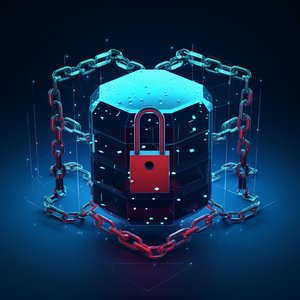

Top Posts
Most Shared
Most Discussed
Most Liked
Most Recent
By Paula Livingstone on June 12, 2023, 12:21 p.m.
Tagged with: Threat Modeling Ethics Innovation Cybersecurity Privacy Security Technology Risk Management Information Technology (It) Threat Detection Critical Infrastructure Network Segmentation Access Control Authentication
The landscape of warfare has undergone a seismic shift in recent years, moving from traditional battlefields to the complex realm of cyberspace. This transformation isn't just a matter of technology; it's a fundamental change in how nations perceive and respond to threats. In the United Kingdom, this evolution has led to a renewed focus on critical infrastructure, from energy grids to financial systems, as potential targets in what is now termed 'hybrid warfare.'
Hybrid warfare is a multifaceted form of conflict that combines conventional warfare, irregular tactics, and cyber warfare. It's not just about soldiers and tanks; it's about hackers, disinformation campaigns, and even economic sabotage. The stakes are high, and the UK has been ramping up its defence mechanisms to counter these threats effectively.
Central to this effort are the National Cyber Security Centre (NCSC) and the Government Communications Headquarters (GCHQ). These agencies have been at the forefront of the UK's cybersecurity initiatives, working tirelessly to protect critical infrastructure and national interests. Their roles have expanded and evolved to meet the challenges posed by hybrid warfare, making them pivotal players in the UK's national security landscape.
But what does this mean for the average citizen or for businesses operating in the UK? It means that the concept of national security is no longer confined to the realm of geopolitics and military strategy. It has trickled down to every layer of society, affecting how we live, work, and interact in this interconnected world.
This blog post aims to delve into the complexities of hybrid warfare and the UK's defence strategies. We'll explore the roles of the NCSC and GCHQ, examine the vulnerabilities in critical infrastructure, and discuss the challenges and solutions on the horizon. So, let's embark on this journey to understand the new battleground that is cybersecurity and hybrid warfare in the UK.
Similar Posts
Here are some other posts you might enjoy after enjoying this one.
Nature of Hybrid Conflicts: Understanding the Landscape and Motivations
Grasping the intricacies of hybrid conflicts is no small feat. It's a complex tapestry woven from various threads: cyber-attacks, disinformation campaigns, and even economic sabotage. In the UK, the National Cyber Security Centre (NCSC) and the Government Communications Headquarters (GCHQ) are at the forefront of unravelling this complexity.
These conflicts are not monolithic; they vary in form and function. Sometimes they are state-sponsored, aimed at destabilising a country's economy or political system. Other times, they are the work of smaller groups or even individuals with a grudge. The motivations can range from geopolitical ambitions to ideological beliefs.
Understanding these motivations is crucial for effective defence. The NCSC, for instance, employs a range of cyber forensic techniques to trace the origins of attacks. This not only helps in immediate defence but also aids in understanding the broader objectives of the attackers, whether they are state actors aiming for strategic advantage or cybercriminals looking for financial gain.
However, motivations are just one part of the puzzle. The tactics used in these conflicts are continually evolving, often outpacing the skills available in the cybersecurity sector. This skills shortage is a concern that both the NCSC and GCHQ are actively addressing through training and recruitment initiatives.
Take, for example, the 2017 WannaCry ransomware attack, which had a crippling effect on the National Health Service (NHS). It was a stark reminder that understanding the landscape of hybrid conflicts is not just an intellectual exercise but a necessity for national security.
In summary, the landscape of hybrid conflicts is complex and ever-changing. It's a battleground that requires constant vigilance, a deep understanding of various motivations, and an agile approach to defence. And in this battle, agencies like the NCSC and GCHQ are the UK's first line of defence.
The Oil and Gas Industry's Vulnerability
When discussing critical infrastructure, the oil and gas sector often emerges as a focal point of vulnerability. In the UK, this is particularly true given the country's extensive North Sea operations. These facilities are not just mechanical constructs; they are increasingly digital, making them susceptible to cyber threats.
The role of the NCSC and GCHQ in safeguarding this sector is multi-faceted. They conduct regular audits, develop industry-specific cybersecurity guidelines, and even engage in threat simulations to test the resilience of these infrastructures. The aim is to pre-emptively identify vulnerabilities and address them before they can be exploited.
Yet, technological solutions are only part of the equation. The sector faces a significant skills shortage, particularly at the intersection of cybersecurity and industrial operations. This gap poses a unique challenge, necessitating targeted training programmes and perhaps even a rethinking of recruitment strategies.
Moreover, the oil and gas industry's interconnectedness means that an attack on one part could have a domino effect. This global nature of the industry makes international collaboration essential. The NCSC and GCHQ are actively involved in such international efforts, sharing threat intelligence and best practices with counterparts in other countries.
It's not just about safeguarding economic interests; it's a matter of national security. The ripple effects of a successful attack could extend far beyond the immediate disruption, affecting energy supplies and even geopolitical stability.
In essence, the oil and gas sector's vulnerability to hybrid warfare tactics makes it a critical area of focus for both governmental agencies and private enterprises. It's a collaborative effort, one that requires constant vigilance, innovation, and a willingness to adapt to new and emerging threats.
Strategic Shifts: From Traditional to Hybrid Warfare
The landscape of conflict has undergone a significant transformation, particularly in the UK. Gone are the days when warfare was solely about physical confrontations. Today, the concept of warfare encompasses a broader spectrum, including cyber activities and information manipulation.
This shift has far-reaching implications for the UK's defence policies. Traditional strategies, often designed around physical assets and geographic locations, are no longer sufficient. The battlefield has extended into cyberspace, requiring a new set of skills and strategies to navigate this complex terrain.
Agencies like the NCSC and GCHQ have been instrumental in this strategic shift. Their expertise in cybersecurity has become a cornerstone in the UK's defence against hybrid threats. They work in tandem with traditional defence agencies to provide a holistic approach to national security.
However, the rapid evolution of cyber threats poses a challenge. The skills required to combat these threats are in short supply, a situation that the NCSC and GCHQ are keenly aware of. Initiatives are underway to bridge this skills gap, including partnerships with educational institutions and private sector organisations.
For instance, the UK's Cyber First programme aims to identify and nurture young talent in cybersecurity. Such initiatives are crucial for staying ahead of adversaries who are constantly evolving their tactics.
In conclusion, the shift from traditional to hybrid warfare is not just a change in tactics; it's a paradigm shift that requires a comprehensive rethinking of defence strategies. The NCSC and GCHQ are at the forefront of this transformation, ensuring that the UK is well-equipped to face the challenges of this new battleground.
Counter-terrorism Perspectives: GCHQ and the NCSC
Counter-terrorism is not a standalone effort; it's an integral part of the broader security landscape. In the UK, the role of GCHQ and the NCSC in counter-terrorism efforts has evolved to meet the challenges posed by hybrid warfare.
These agencies are not just passive observers; they are active participants in identifying and neutralising threats. Their work involves a blend of intelligence gathering, data analysis, and direct action, often in collaboration with other security agencies both domestically and internationally.
One of the key challenges in counter-terrorism is the ever-changing nature of the threats. Adversaries are continually evolving their tactics, often employing a mix of cyber and physical attacks. This requires a dynamic approach to defence, one that can adapt to new challenges as they emerge.
The skills shortage in cybersecurity is a significant concern in this context. GCHQ and the NCSC are actively working to address this gap through various initiatives, including training programmes and partnerships with academic institutions.
For example, the CyberFirst programme aims to identify and nurture young talent in cybersecurity, providing them with the skills needed to defend against a range of threats, including those related to terrorism.
In summary, counter-terrorism in the age of hybrid warfare is a complex, multifaceted challenge that requires a coordinated approach. GCHQ and the NCSC are at the forefront of the UK's efforts, leveraging their expertise in cybersecurity to contribute to a more secure and resilient nation.
Hybrid Warfare: Case Studies and Lessons
Learning from real-world incidents is crucial for understanding the complexities of hybrid warfare. The UK has witnessed several cases that serve as instructive examples, offering insights into the tactics employed by adversaries and the countermeasures that proved effective.
One such case involved a coordinated cyber-attack on a critical infrastructure facility. The incident was a wake-up call for the UK, highlighting vulnerabilities that had previously been overlooked. GCHQ and the NCSC played a pivotal role in not only mitigating the attack but also in dissecting it afterwards to understand the adversary's tactics.
This post-incident analysis is invaluable for refining defence strategies. It allows for a better understanding of the threat landscape, helping to identify gaps in existing security measures and providing a roadmap for future improvements.
Another lesson comes from the realm of information warfare. Disinformation campaigns aimed at influencing public opinion have become increasingly sophisticated. GCHQ and the NCSC are actively involved in countering such campaigns, employing a range of tools from fact-checking to more advanced counter-propaganda techniques.
However, combating hybrid warfare is not just the responsibility of government agencies. The private sector, too, has a role to play, especially when it comes to cybersecurity. Public-private partnerships are essential for creating a unified defence strategy, one that leverages the strengths of both sectors.
In conclusion, the study of past incidents in hybrid warfare provides invaluable lessons for the UK. It helps in refining defence strategies, improving preparedness, and ensuring that both government agencies and private sector organisations are equipped to deal with the evolving threats.
Challenges: Identifying Gaps and Allocating Resources
Addressing the challenges of hybrid warfare is no small feat. It requires a comprehensive understanding of the threat landscape, as well as the resources to counter these threats effectively. In the UK, GCHQ and the NCSC are at the forefront of this effort, but challenges remain.
One of the most pressing issues is the identification of security gaps. Despite advancements in cybersecurity, vulnerabilities continue to exist, often in unexpected places. These gaps can be technological, such as outdated software, or human, such as a lack of trained personnel.
Resource allocation is another significant challenge. Cybersecurity is a field that requires constant investment, not just in technology but also in human capital. The skills shortage in cybersecurity is particularly acute, and initiatives are underway to address this, including training programmes and educational partnerships.
However, resources are finite, and prioritising them effectively is crucial. This involves difficult decisions, such as whether to invest in new technologies or to focus on training existing staff. It's a balancing act, one that requires careful planning and execution.
Public-private partnerships can play a role in addressing these challenges. By pooling resources and expertise, these partnerships can create a more robust defence strategy, one that is capable of adapting to the evolving threat landscape.
In summary, the challenges of hybrid warfare are multifaceted and complex. Identifying gaps and allocating resources effectively are critical steps in building a robust defence strategy. While challenges remain, the efforts of agencies like GCHQ and the NCSC provide a strong foundation upon which to build.
Adapting GCHQ and the NCSC: Changes and Implementation
Adaptability is crucial in the ever-changing landscape of hybrid warfare. For the UK, this means that agencies like GCHQ and the NCSC must continually evolve to meet new challenges. This involves not just technological changes but also shifts in strategy and implementation.
One of the key aspects of this adaptability is the ability to quickly implement changes. This could mean deploying new cybersecurity measures, updating existing protocols, or even overhauling strategies entirely. The agility to adapt is what sets successful defence initiatives apart.
However, implementing changes is not without its challenges. There are often bureaucratic hurdles to overcome, not to mention the need for coordination among various agencies and departments. This is where the expertise and leadership of GCHQ and the NCSC become invaluable.
For instance, the introduction of new cybersecurity technologies often requires a period of adjustment and training. This is a critical phase, as improperly implemented technologies can create new vulnerabilities instead of patching old ones.
Moreover, the skills shortage in cybersecurity adds another layer of complexity to the implementation process. Training programmes and educational partnerships are part of the solution, but they are long-term strategies. In the short term, agencies may need to rely on external consultants or even international partners.
In conclusion, adaptability is key to staying ahead in the complex game of hybrid warfare. While challenges in implementation exist, the expertise and leadership of GCHQ and the NCSC provide a solid foundation for the UK's defence strategies.
The UK's Unique Challenges in Hybrid Warfare
The United Kingdom faces a unique set of challenges in the realm of hybrid warfare, shaped by its geopolitical standing, historical relationships, and technological landscape. These challenges require bespoke solutions, tailored to the UK's specific needs and vulnerabilities.
One such challenge is the UK's role as a global financial hub. This makes it a prime target for cyber-attacks aimed at destabilising the economy. Agencies like GCHQ and the NCSC are tasked with safeguarding critical financial infrastructure, a role that has become increasingly complex in the age of hybrid warfare.
Another unique challenge is the UK's political landscape, which can be exploited through information warfare. Disinformation campaigns have the potential to influence public opinion and disrupt democratic processes. Countering this requires a multi-faceted approach, involving not just technological solutions but also public awareness campaigns.
The UK's geographical location also presents its own set of challenges. Being an island nation, it has several points of entry that could be exploited for hybrid warfare tactics, including ports and airports. This necessitates a well-coordinated defence strategy that encompasses not just cyber but also physical security measures.
Moreover, the UK's historical relationships and alliances add another layer of complexity. It is often seen as a bridge between the United States and Europe, making it a potential target for actors who wish to destabilise these relationships. This geopolitical standing requires a nuanced approach to defence, one that takes into account not just national but also international considerations.
In conclusion, the UK's unique challenges in hybrid warfare are multi-dimensional and complex. They require a coordinated and nuanced approach, one that agencies like GCHQ and the NCSC are well-equipped to provide.
Public-Private Partnerships in Defence
Public-private partnerships have become an indispensable part of the UK's defence strategy, especially in the realm of hybrid warfare. These partnerships allow for a more agile and robust defence mechanism, combining the resources and expertise of both sectors.
One of the key advantages of such partnerships is the ability to leverage private sector innovation. Companies in the tech industry, for example, often have cutting-edge technologies that can be adapted for defence purposes. This is particularly relevant in the field of cybersecurity, where innovation can quickly tip the scales in favour of defence.
However, these partnerships are not without their challenges. Issues of data security and sovereignty often arise, requiring stringent legal frameworks to ensure that sensitive information is adequately protected. This is where agencies like GCHQ and the NCSC play a crucial role in establishing guidelines and protocols.
Moreover, the success of these partnerships hinges on effective communication and trust. Both parties must be transparent about their capabilities and limitations, and be willing to collaborate openly. This is easier said than done, especially when national security is at stake.
For instance, the collaboration between the UK government and private companies in the oil and gas sector is a case in point. Given the critical importance of energy infrastructure, any form of hybrid attack on this sector could have devastating consequences. Public-private partnerships serve as a first line of defence in safeguarding these critical assets.
In conclusion, public-private partnerships in defence are a vital component of the UK's strategy against hybrid warfare. While challenges exist, the benefits far outweigh the risks, making these collaborations an essential part of national security.
Information Warfare and National Security
Information warfare has emerged as a significant facet of hybrid warfare, and its implications for national security are profound. In the UK, the role of GCHQ and the NCSC in countering information warfare is pivotal.
Disinformation campaigns, often propagated through social media and other online platforms, can have a destabilising effect on public opinion and even electoral outcomes. The NCSC has been instrumental in identifying and neutralising such threats, often in real-time.
However, the fight against information warfare is not just a technological battle; it's also a battle for hearts and minds. Public awareness campaigns, often run by the NCSC, aim to educate the public on how to discern credible information from disinformation.
Moreover, the UK's international alliances add another layer of complexity to the information warfare landscape. Intelligence sharing and coordinated countermeasures are essential but come with their own set of challenges, such as data protection and sovereignty issues.
For example, during the Brexit negotiations, the risk of disinformation campaigns aimed at influencing public opinion was high. GCHQ and the NCSC played a crucial role in monitoring online activities and taking appropriate countermeasures.
In conclusion, information warfare is a complex and evolving threat to national security. The UK, with its robust technological infrastructure and international alliances, is well-positioned to counter these threats, but the challenges are ongoing and multifaceted.
The NCSC's Advisory Role in National Security
The National Cyber Security Centre (NCSC) serves as an advisory body to GCHQ and other governmental agencies, offering expert guidance on a range of cybersecurity issues that have implications for national security.
One of the key functions of the NCSC is to provide threat intelligence. By constantly monitoring cyber activities, the NCSC can offer timely advice to GCHQ and other stakeholders, helping them make informed decisions on defence strategies.
Another crucial role is the NCSC's involvement in policy formulation. By offering insights into the evolving landscape of cyber threats, the NCSC helps shape policies that are both proactive and reactive, ensuring that the UK is prepared for various forms of hybrid warfare.
The NCSC also plays a significant role in skills development. Given the current skills shortage in cybersecurity, the NCSC's training and awareness programmes are vital for building a workforce capable of defending the nation against complex cyber threats.
For instance, the NCSC has been involved in advising the UK government on securing critical infrastructure. Their expertise has been crucial in formulating strategies to protect sectors like energy, healthcare, and transportation from cyber threats.
In summary, the NCSC's advisory role is multi-faceted and extends beyond mere consultation. It plays a crucial part in shaping the UK's defence strategy, making it an indispensable component of national security.
International Collaboration in Defence
International collaboration is a cornerstone of the UK's defence strategy, particularly in the context of hybrid warfare. The interconnected nature of these threats necessitates a collective response, often involving multiple nations.
Agencies like GCHQ and the NCSC often collaborate with their counterparts in other countries. This allows for a pooling of resources and intelligence, making it easier to identify and counteract threats in a timely manner.
However, international collaboration is not without its challenges. Issues related to data sovereignty, legal frameworks, and differing national interests can sometimes hinder effective cooperation. It's crucial to navigate these complexities carefully to maintain the integrity of shared defence initiatives.
For example, the Five Eyes alliance, comprising the United States, the United Kingdom, Canada, Australia, and New Zealand, serves as a robust framework for intelligence sharing. This alliance has been instrumental in thwarting numerous cyber threats, thereby enhancing collective security.
Furthermore, the UK's role in NATO also exemplifies the importance of international collaboration. NATO's Cooperative Cyber Defence Centre of Excellence, for instance, offers a platform for member countries to collaborate on cybersecurity research, training, and exercises.
In conclusion, international collaboration enriches the UK's defence capabilities and offers a more holistic approach to tackling the complexities of hybrid warfare. While challenges exist, the benefits of such collaborations are invaluable for national security.
Future Trends in Hybrid Warfare
As we look to the future, it's clear that the landscape of hybrid warfare is continually evolving. New technologies, geopolitical shifts, and societal changes all contribute to an increasingly complex threat environment.
Artificial intelligence, for instance, is poised to play a significant role in both offence and defence. The UK, through agencies like GCHQ and the NCSC, is actively researching the implications of AI in cybersecurity, aiming to stay ahead of potential threats.
Another emerging trend is the increasing focus on attacking critical infrastructure. As seen in recent cyber-attacks on the oil and gas industry, the stakes are high, and the potential for widespread disruption is significant.
Additionally, the skills shortage in cybersecurity poses a growing challenge. The NCSC is actively involved in education and training initiatives to bridge this gap, but it's a long-term issue that requires sustained effort from both the public and private sectors.
Global politics also play a role. The rise of state-sponsored cyber-attacks means that hybrid warfare is not just the domain of non-state actors. This adds an additional layer of complexity to defence strategies, requiring a more nuanced approach.
In conclusion, the future of hybrid warfare is uncertain and fraught with challenges. However, by staying ahead of emerging trends and continually adapting defence strategies, the UK is well-positioned to navigate this complex landscape.
Conclusion: Summary and Key Takeaways
As we've explored throughout this post, the landscape of hybrid warfare is complex and ever-changing. The UK, with its robust defence mechanisms and agencies like GCHQ and the NCSC, is well-equipped to navigate these challenges.
From understanding the nature of hybrid conflicts to adapting strategies and fostering international collaborations, the UK has a multi-faceted approach to defence. The role of public-private partnerships and the focus on critical infrastructure like the oil and gas industry add layers of resilience to the UK's defence strategy.
However, challenges remain. The skills shortage in cybersecurity is a pressing issue that requires immediate attention. Moreover, the evolving nature of threats, especially with advancements in technology like artificial intelligence, means that constant vigilance and adaptation are necessary.
It's also crucial to remember that hybrid warfare is not just a national issue but a global one. International collaboration remains vital for a comprehensive defence strategy, and the UK's involvement in alliances like NATO and the Five Eyes adds value to its defence capabilities.
Finally, as the landscape of hybrid warfare continues to evolve, so must our strategies to counter it. Continuous research, public awareness, and policy updates are essential for staying ahead of new challenges.
In summary, while the road ahead is fraught with challenges, the UK's comprehensive approach to hybrid warfare defence, backed by robust agencies and international collaborations, positions it well to face the future.
Start the discussion
Post Discussion
Reply to
Want to get in touch?
I'm always happy to hear from people. If youre interested in dicussing something you've seen on the site or would like to make contact, fill the contact form and I'll be in touch.







No comments yet. Why not be the first to comment?